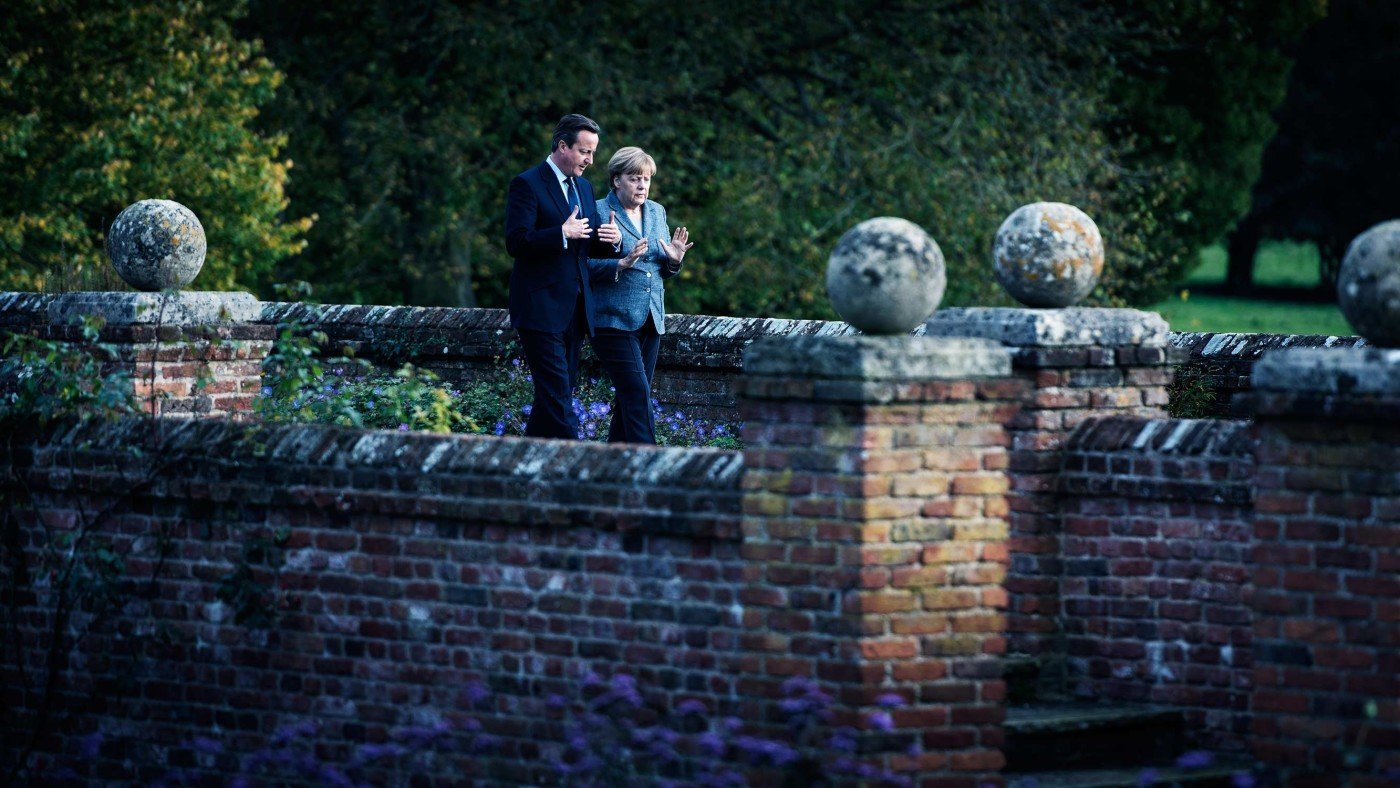For the first time on the Andrew Marr show on Sunday, David Cameron showed a rare moment of clarity, cutting the bluster and stating, at last, the real reason we must not Brexit. He said, outside the EU:
“You have an illusion of sovereignty but you don’t have power.”
The world is perhaps the most integrated and interdependent than it has been at any point in its history. We heat our homes with Russian gas, drive German cars and run American computers with Chinese-made microchips.
But power is still what determines who gets the best trade deals, and whose values dominate the international system.
A big chunk of our power comes from being the lynchpin between the EU and America. With a foot on the shores of the two largest markets in the world, by working with us, other states get a seat at the table.
As a result, what we say matters.
When we ask such states to accommodate our interests, they listen, because the costs of being in our bad books will materially damage their interests. We have real influence both in the United States and Europe, as a result of strong cultural and institutional links, that other developed states simply do not have.
So far, the arguments both for and against Brexit, have revolved around jobs, investment and trade in the abstract, without looking at the costs to our power. Vague figures are thrown about with abandon, and the real consequences of Brexit are missed by a whole level of analysis. China comes to us, and not France or The Netherlands first not because they like us, but because we are so strategically located. We can actually make things happen.
So why would Brexit damage this?
By removing ourselves from the political structures of the EU, we become an outsider not an insider. It will be no longer possible to put a well-placed word in the ear of the right EU official, or to caucus within the EU for certain policy positions, to get the changes we want.
This is less an issue with an angry EU getting its revenge, but one of pure structure. We simply would not have the institutional ability to defend our interests within EU policy in the same way we can now if out. Given the amount of trade we do with Europe, it would leave us beholden to an economic policy we had no power to create.
In the EU paradigm, we will not always get our way against the wishes of 27 other members.
I sympathize with sovereignty advocates such as Boris Johnson, Michael Gove and Kate Hoey. They hark for a time when the world was simple, and internal factors were all that really mattered in many areas of policy. In that case, I too would worry about an interfering other such as the EU.
But the idea that sovereignty will give us meaningfully independent policy today is a myth. International organisations, and multinational companies do not respect borders, only power. In an interdependent world, why would China or Microsoft build strong links with us after we have voted not to have clout in Europe? It would simply make little business sense, as a mid-level economy with declining relative power will not be able to help them achieve their future interests. Firms tend to think in the very long run.
Of course the EU won’t be excessively punitive to us if we vote to leave. For its own economic prosperity, it cannot afford to undermine trade with us, and would likely realign its relations with the UK along the lines of a larger Norway. A free trade deal is almost a given. Ideas of migrant camps in Kent and increased terror threats, raised by Cameron and other Vote Remain leaders, are utter tripe.
Neither we nor any EU state would risk terror attacks through non-cooperation. The electorate would not be kind to any government that allowed that to happen.
The Cameron deal was more bluster. It does not change anything about our relationship with the EU. It simply puts a shine on some of the costs of integration, such freedom of movement, and is an attempt to try and show he has listened to the Tory grassroots (read, he doesn’t care what they have to say). It is political spin of the highest kind. But this spin threatens to miss the real threat that Brexit presents, which must be trumpeted loud and clear.
British power and influence around the world keeps our economy strong and protects the democracy and the rule of law that while Brexiters don’t like to admit it, the EU is the strongest global advocate of.
The skies will not fall in if we vote to leave. But doing so would be a vote to be a much weaker global power.
In the long run, the truth is that loss of global influence will damage our prosperity and the durability of the values we hold most dear in an uncertain world.


